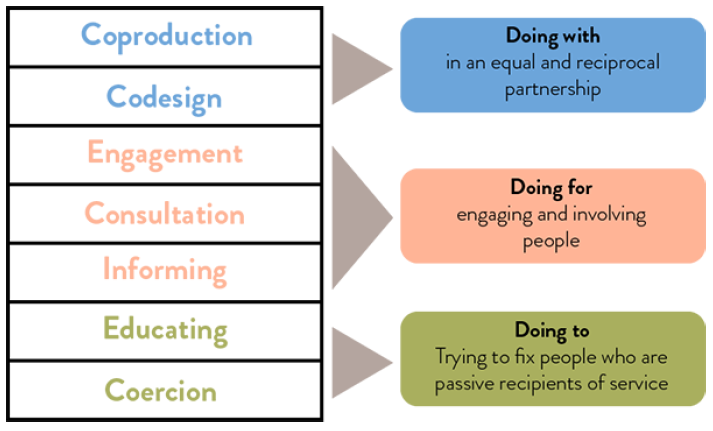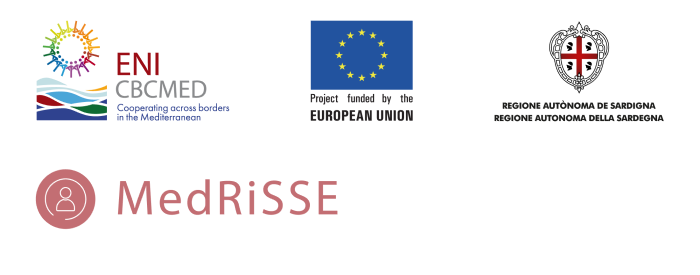What is “co-production”?
The term “co-production” finds its academic origins in the public sector, in the work of Nobel Prize winner Elinor Ostrom[i] and other economists in the 1970s who studied collaboration between government departments and citizens, showing that it was encouraged effective service delivery through collaboration between professional providers and service users, rather than central planning. In recent decades, governments have rediscovered the citizen as an important actor in the design, implementation and monitoring of public policies and services.
Read Co-production Catalogue for Wales, pages 14-16
Co-production is an approach to decision making and service design rather than a specific method. It rejects the traditional understanding of service users as dependent on public services and instead redefines the service/user relationship as one of co-dependency and collaboration. In practice, it means that those affected by a service are not only consulted, but they are also part of the conception, design, direction and management of the services.
For that reason, co-production goes far beyond the idea of ”citizen participation” or “participation of service users” to promote the principle of equal partnership. It offers to transform the dynamic between the public and public service workers, putting an end to “them” and “us.” Co-production turns service users from passive recipients into active shapers of public services because it means involving all stakeholders, including the people who use a service, in the process of determining what services are provided and how they operate[ii].
Co-production means delivering public services in an equal and reciprocal relationship between professionals, people using services, their families and their neighbours. Where activities are co-produced in this way, both services and neighbourhoods become far more effective agents of change [iii]. To reach this stage there must be reallocation of power and control through user-led planning, delivery, management, empowerment and governance and collaboration must be entrenched. It often requires organisational change.

